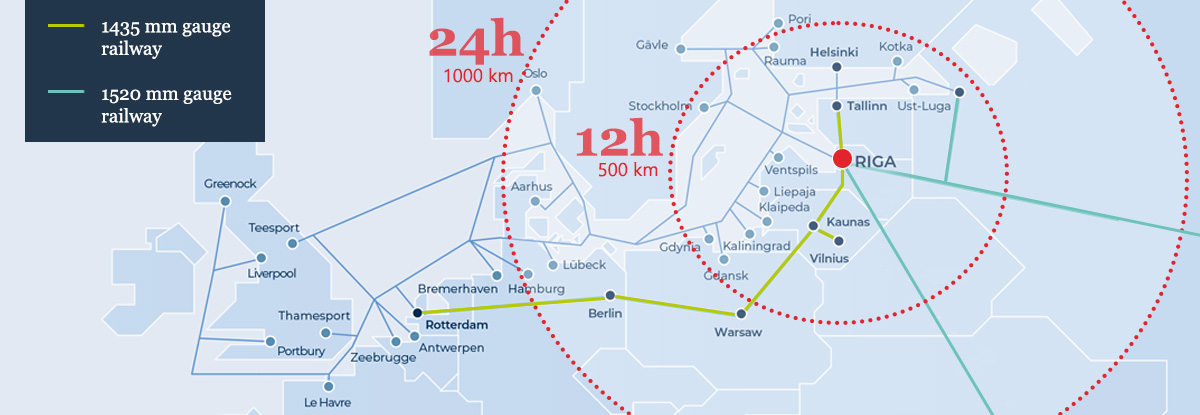
The Port of Riga, as the central port of the Baltic States, provides efficient access to a wide logistics network that connects Northern Europe, EU, and even remote regions of Eurasia
Due to its location in the center of the Baltic States the Freeport of Riga is a convenient logistics and distribution center for the Northern European region. Within 24 hours, goods from the Riga port can be delivered to any destination in the Baltic States, as well as to Stockholm, Helsinki and Warsaw, but within 48 hours to any destination in the Nordic countries. Riga is the largest metropolis in the Baltic States, providing excellent business infrastructure and qualified workforce, as well as a quality living environment.
Being located in the European Union and the Eurozone ensures not only a stable economic environment and investment security, but also entrepreneurs’ free access to the European markets and the opportunity to get support from the EU structural funds. Within the framework of the new EU cohesion policy, around 10.5 billion EUR will be available for the economic development of Latvia from 2021 to 2027. A smarter Europe, a greener Europe and a more connected Europe are the key objectives of the cohesion policy on the European level and form the basis for business support at the Port.
Well-developed connections of all transport modes and the variety of accessible logistics solutions make the Freeport of Riga a significant multimodal transportation hub. Vessel traffic at the Freeport of Riga provides maritime connections with the ports of 50 different countries of the world, while the 1520 mm gauge railway network ensures reliable cargo delivery and reception from the most distant destinations within the Eurasian continent. Riga Airport is the largest air hub in the Baltics, and regular ferry traffic at the Freeport of Riga provides for efficient multimodal cargo transportation in compliance with the modern trade requirements. The future high-speed railway line Rail Baltica with a European railway standard track gauge of 1435 mm will ensure efficient cargo transit between the Freeport of Riga, the capitals of the Baltic States and multiple European destinations up to the North Sea and the Adriatic Sea.
 English
English






















